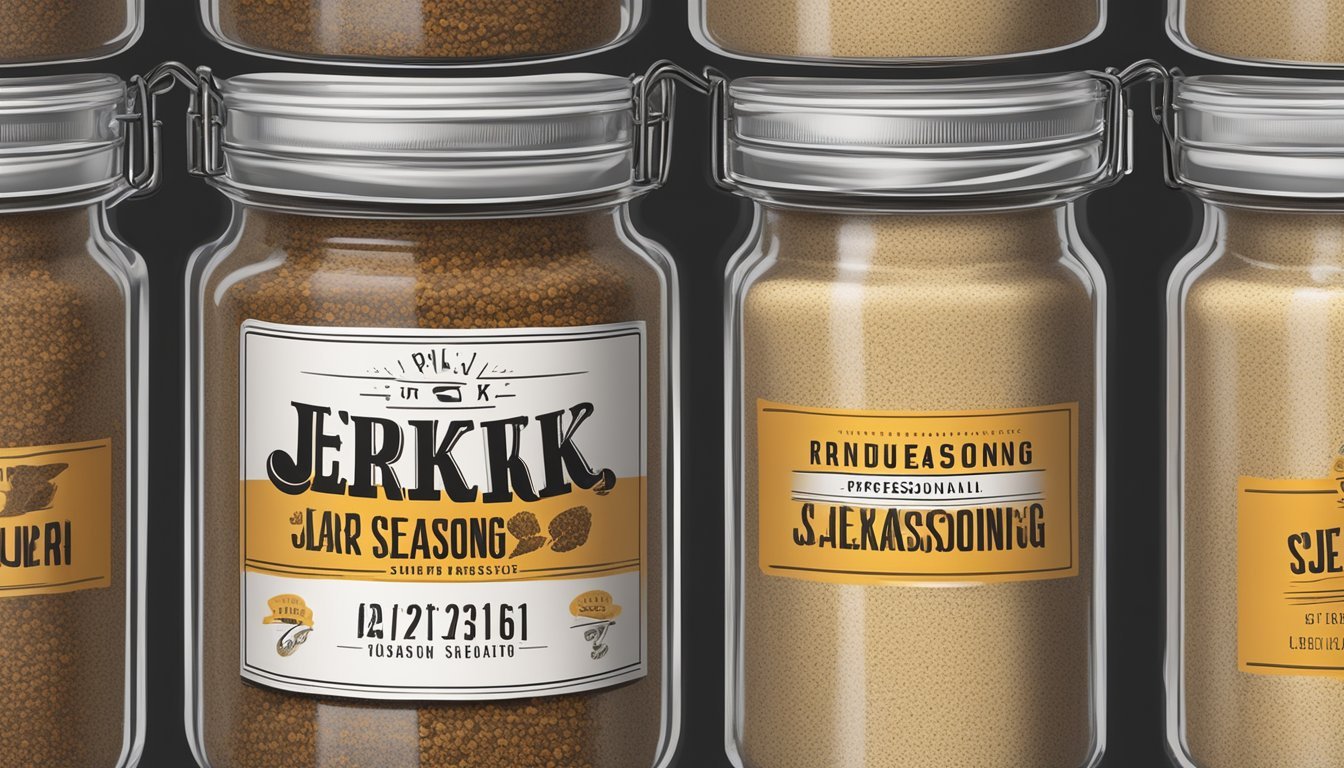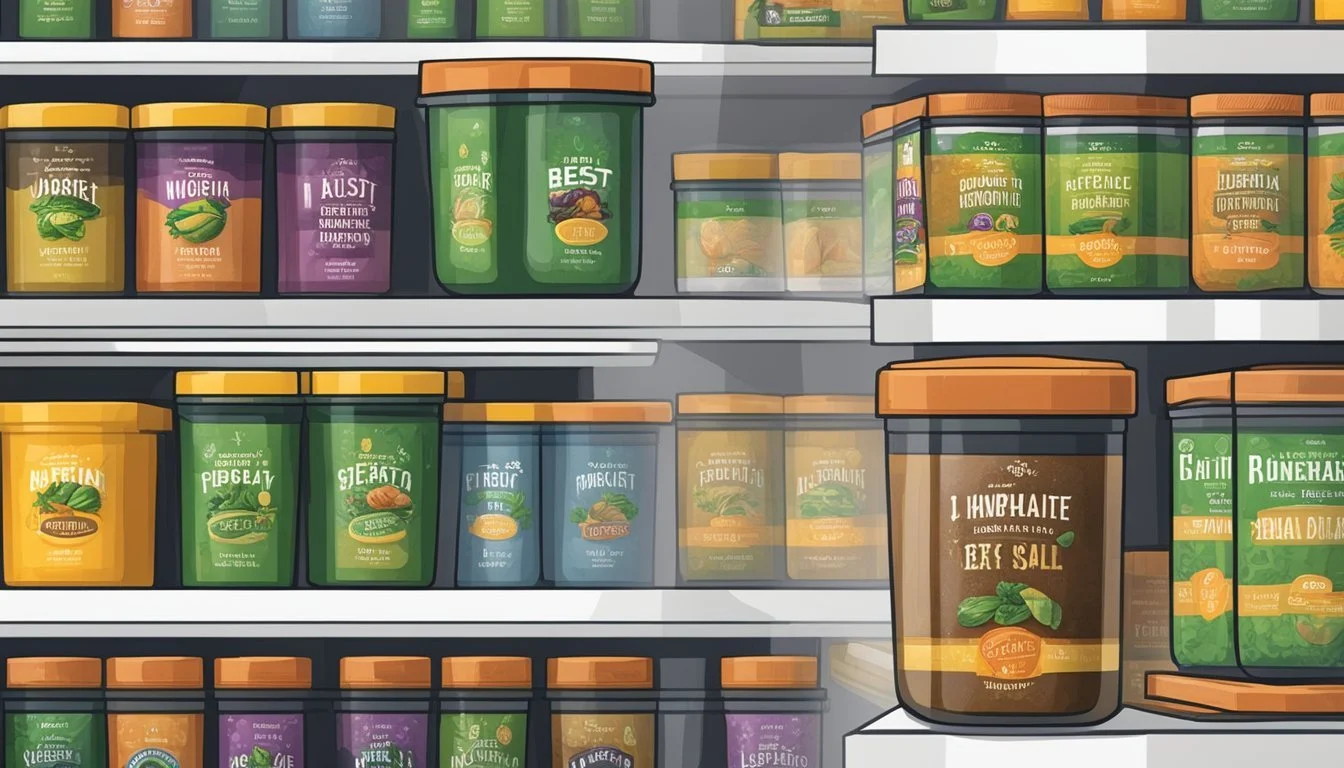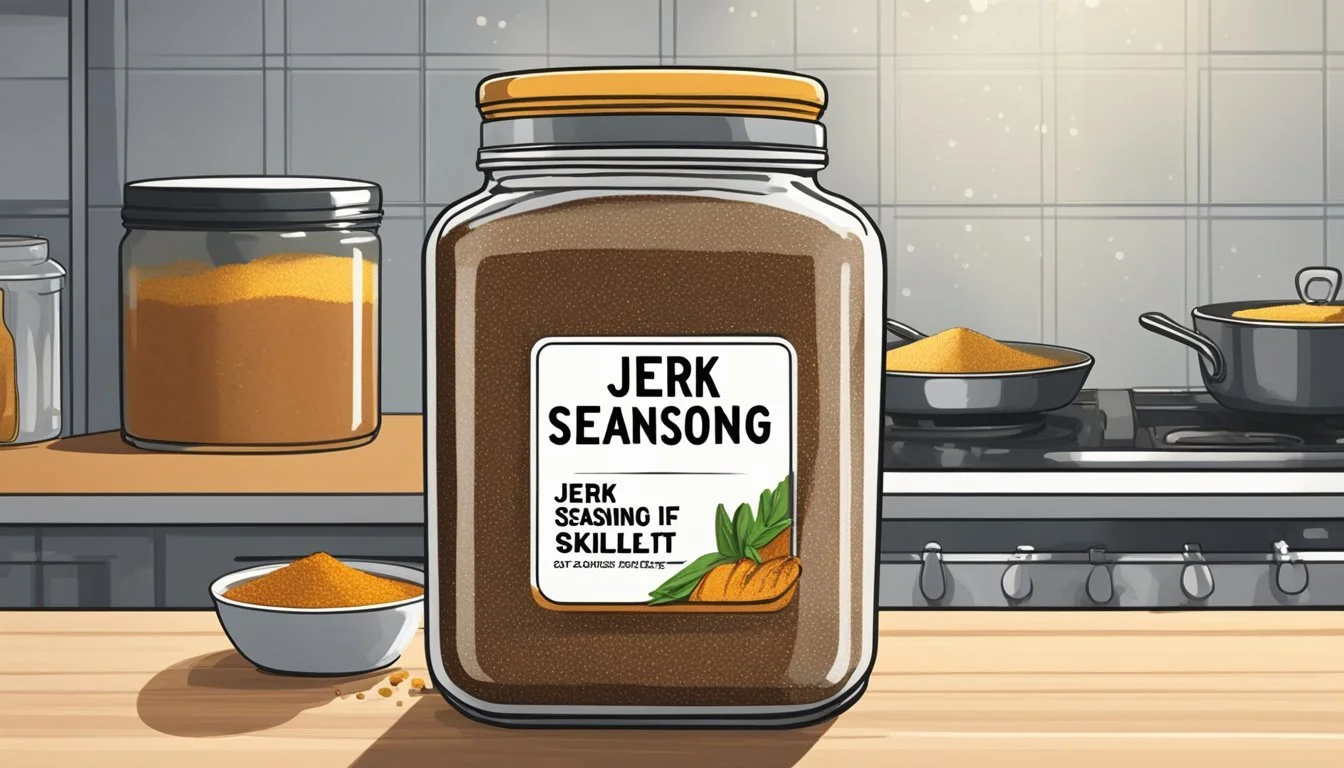Does Jerk Seasoning Expire? Key Facts and Storage Tips
Jerk seasoning is a staple in many kitchens, known for its robust blend of spices and herbs that elevate dishes to a new level of flavor. While jerk seasoning does not technically expire, its potency and quality can diminish over time. For the best taste, unopened jerk seasoning retains its optimal quality for about 2 to 3 years when stored in a cool, dry, and dark place.
Once opened, the shelf life of jerk seasoning reduces significantly, lasting up to six months if kept under ideal conditions. Always ensure the container is tightly sealed to maintain the seasoning's freshness. Proper storage practices are essential to preserve the vibrant flavors that make jerk seasoning a favorite in Caribbean cuisine.
Understanding the longevity of jerk seasoning can help you make better use of your spices and ensure your dishes always burst with authentic taste. By knowing how to store your jerk seasoning correctly, you maximize its shelf life, allowing you to enjoy its rich flavor for as long as possible.
Understanding Jerk Seasoning
Jerk seasoning is a flavorful and aromatic blend rooted in Jamaican cuisine, characterized by its combination of pungent spices and herbs. This section explores its rich history, essential ingredients, and distinctive flavor profile.
History of Jerk Seasoning
Jerk seasoning's origins trace back to the indigenous Arawak people of the Caribbean. The method was later adapted by African slaves who incorporated their own spices and cooking techniques. This blend of cultures resulted in the robust and fiery jerk seasoning known today.
Maroon communities, formed by escaped slaves, further refined the recipe, using native ingredients and smoking methods to preserve meat. This historical context is crucial to understanding the seasoning’s cultural significance and evolution.
Key Ingredients
The cornerstone of jerk seasoning is a blend of allspice and Scotch bonnet peppers, delivering both heat and a unique complexity. Other vital ingredients include thyme, garlic, and onion, which add layers of flavor.
Salt and sugar balance the spice, while additional herbs like chives can be included for extra nuance. These ingredients combine to create a seasoning that is both spicy and aromatic, making it ideal for marinating meats, especially chicken and pork.
Flavor Profile of Jerk Seasoning
Jerk seasoning boasts a multifaceted flavor profile. The prominent heat from Scotch bonnet peppers is balanced by the sweet, warm notes of allspice. The aroma is unmistakably vibrant, with hints of thyme and garlic creating a fragrant bouquet.
This bold mix results in a seasoning that is savory, spicy, and slightly sweet. The complex interplay of spices and herbs ensures that each bite delivers a rich and memorable taste experience, quintessential to Caribbean cuisine.
Safety and Quality Indicators
When evaluating the safety and quality of jerk seasoning, it is important to focus on sensory attributes like smell and sight, as well as testing its potency. These indicators can help determine if the seasoning is still suitable for culinary use.
Sensory Evaluation
Jerk seasoning should have a robust and spicy aroma. If it smells musty, sour, or otherwise off, it may indicate spoilage. Fresh seasoning will also have a strong, distinct scent that is easily noticeable.
In addition to aroma, consider the texture. The spices should be free-flowing without clumping. If the seasoning feels sticky or has hardened, it is best to dispose of it. Sensory evaluation is a critical first step in determining the seasoning's condition.
Color and Aroma Changes
Over time, jerk seasoning may lose its vibrant color. Originally, it typically has deep reds, browns, and greens from its spices. Fading or dulling of these colors can indicate loss of potency or stale ingredients.
Similarly, aroma is a key quality factor. The traditional pungent and spicy smell can diminish with time. A weak aroma suggests the flavor profile has degraded. Changes in color and aroma usually indicate that the seasoning might not perform well in dishes.
Testing Potency
To test the potency of jerk seasoning, sprinkle a small amount into a dish or even taste a tiny pinch directly. The seasoning should deliver a noticeable kick of heat and complexity. If it tastes bland or lacks its characteristic spice, it may no longer be effective.
Testing potency offers a clear indicator of whether the seasoning still holds its intended flavor. Potent spices will enhance dishes significantly, while weak seasoning can result in underwhelming meals.
Being attentive to these signs will help ensure jerk seasoning remains safe and effective for culinary use. Regular checks can prevent the use of seasoning that has lost its quality and effectiveness.
Proper Storage Practices
Effective storage of jerk seasoning ensures its flavor and potency last for as long as possible. Consider factors like container quality, storage location, and the impact of specific conditions.
Home Storage Solutions
To maintain the quality of jerk seasoning, store it in airtight containers. Glass jars with tight-fitting lids are preferable over plastic containers as they provide a better seal.
Place these containers in a pantry, choosing a cool, dry, and dark place. This reduces exposure to light, humidity, and temperature fluctuations, which can degrade the seasoning. For those using jerk seasoning frequently, smaller containers are advised to minimize exposure to air each time they are opened.
Effect of Storage Conditions
Proper storage conditions are crucial for preserving the seasoning's unique flavors. Humidity and light can accelerate the breakdown of spices. Thus, a cool and dry environment is essential.
If the seasoning is exposed to heat or moisture, its shelf life can be significantly reduced. Dark places such as kitchen cabinets or dedicated spice racks with doors help protect the seasoning from light and excess heat that may come from cooking appliances.
Shelf Life
Jerk seasoning, when unopened and stored properly, can maintain optimal quality for 2 to 3 years. Once opened, its shelf life decreases, generally lasting about six months under ideal conditions.
Homemade blends may have a shorter shelf life due to the lack of commercial preservatives. Using freshly ground spices can also impact longevity. For bulk buys, transfer the seasoning to several small, airtight containers to help maintain its freshness each time one is opened.
Expiration and Usage
Jerk seasoning, whether commercial or homemade, has a distinct shelf life that changes based on storage conditions and whether the package remains unopened. Properly stored seasoning ensures maximum flavor in various recipes, even if it's past the expiration date.
Determining the Expiration Date
Unopened jerk seasoning retains its quality for approximately 2 to 3 years when stored in optimal conditions—cool, dry, and dark environments. Once opened, however, the seasoning's quality diminishes faster, typically lasting up to six months.
Consumers should check for any changes in color, texture, or aroma, as these are indicators that the seasoning may have spoiled. The use-by date on the package serves as a guideline for best quality, but not necessarily for safety.
How to Use Expired Seasoning
While the potency of jerk seasoning may decline after its expiration date, it can still be used effectively in cooking if it shows no signs of spoilage. Mixing it with fresher spices can help restore some of its flavors.
Expired seasoning can be used in marinades or slow-cooked dishes where the long cooking times might compensate for any loss in intensity. However, it's advisable to taste a small amount before using it in a recipe to ensure it meets flavor expectations.
Maximizing Shelf Life
To extend the shelf life of jerk seasoning, it's crucial to store it properly. Here are some tips:
Seal tightly: Use containers with tight-fitting lids to keep air and moisture out.
Store in a cool, dry place: Avoid areas exposed to heat, light, or humidity, such as near stovetops or windows.
Avoid freezing: While freezing can extend the life of some spices, it is not recommended for jerk seasoning as it may alter the flavor and texture.
By following these storage guidelines, the seasoning can retain its quality for as long as possible, ensuring consistently flavorful dishes.
Making Homemade Jerk Seasoning
Creating your own jerk seasoning at home offers fresher flavors and more control over the ingredients. This guide will highlight the benefits of homemade blends and provide a straightforward process to make your own spicy, versatile seasoning.
Benefits of Homemade Blends
Homemade jerk seasoning allows for customization. You can adjust the spice levels to suit your taste, opting for more Scotch bonnet peppers or less cayenne pepper if desired.
Control over ingredients means no preservatives or additives, just fresh spices like ginger, cumin, cloves, nutmeg, and cinnamon.
Using a homemade blend often results in richer and more robust flavors. Freshly ground spices offer a depth that store-bought versions may lack.
Cost-effectiveness is another perk. Purchasing bulk spices and making your blend can be cheaper in the long run compared to buying ready-made versions.
Step-by-Step Guide
Ingredients Needed:
1 tablespoon ground allspice
1 tablespoon dried thyme
1 tablespoon ground ginger
2 teaspoons ground cinnamon
2 teaspoons ground nutmeg
2 teaspoons ground cloves
2 teaspoons ground black pepper
2 teaspoons kosher salt
1 teaspoon cayenne pepper
1 tablespoon brown sugar
2 finely chopped Scotch bonnet peppers (optional for extra heat)
Instructions:
Gather All Ingredients: Start by collecting all the spices and ingredients listed above.
Mix Ingredients: In a medium-sized bowl, combine the allspice, thyme, ginger, cinnamon, nutmeg, cloves, black pepper, kosher salt, cayenne pepper, and brown sugar.
Combine Thoroughly: Stir all the ingredients together until they are evenly mixed.
Store Properly: Transfer the spice blend to an airtight container. Store it in a cool, dry place to maintain freshness.
Making your homemade jerk seasoning results in a powerful, versatile spice blend ready to enhance the flavor of various dishes.






